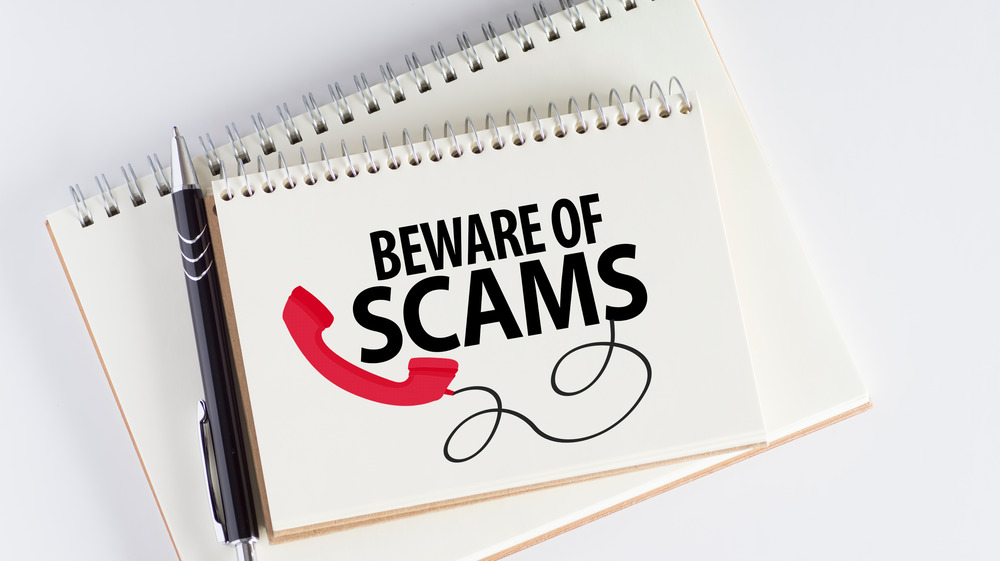Don't Fall For This New Aldi Facebook Scam
Aldi is one of the latest large retailers to be hit by a copycat scam aimed at their shoppers. The company addressed the matter on Facebook, saying, "Hey ALDI fans! Looks like another Facebook scam is making its way around. We can confirm it is a scam and the page has no affiliation with ALDI. We're sorry for any confusion this may have caused!" The retailer notes that they are already working with Facebook to help remove this copycat scam but that buyers should be aware. While Aldi does not specify the exact nature of the scam, publications and user comments have indicated the fake post offered extensive giveaways of free groceries (via My State Line) – an especially cruel joke for people experiencing food shortages after the economic impacts of the coronavirus.
In general, if a post has an offer that's too good to be true, start thinking scam. Do your research to make sure you are interacting with authentic profiles and business by checking for excessive typos, profiles without a history, locations that do not match services, and more.
Avoid scams on Facebook
Facebook attempts to shut down scams as soon as they are made aware of the predatory posts, but people and bots can be sneaky. Fortunately, there are some tips you can use to help you identify predatory posts as soon as they enter your feed. According to Facebook's official help pages, scams typically take five different forms: romance, lottery, loan, access token theft, and job scams. The Aldi scam would likely fall into the lottery category, where the scammer impersonates a well-known and trusted brand or government page. The scam will offer free cash or prizes in return for personal information. You may also be asked to pay a small fee. Don't.
If you find a quote and you aren't sure whether or not it's a scam, follow these steps. If people are asking you for money in a post, again – don't do it. Facebook has three primary payment options: Marketplace, Nonprofit Donations, and Sales through business pages. If the post is selling you an actual item or service or supporting a cause, then it should provide a secure way to pay. Avoid interacting with people online who say they know you, but you don't know them. Scams like to impersonate a close contact. Don't work with business pages that aren't verified. Verification means Facebook has checked to make sure this poster is the real deal.

